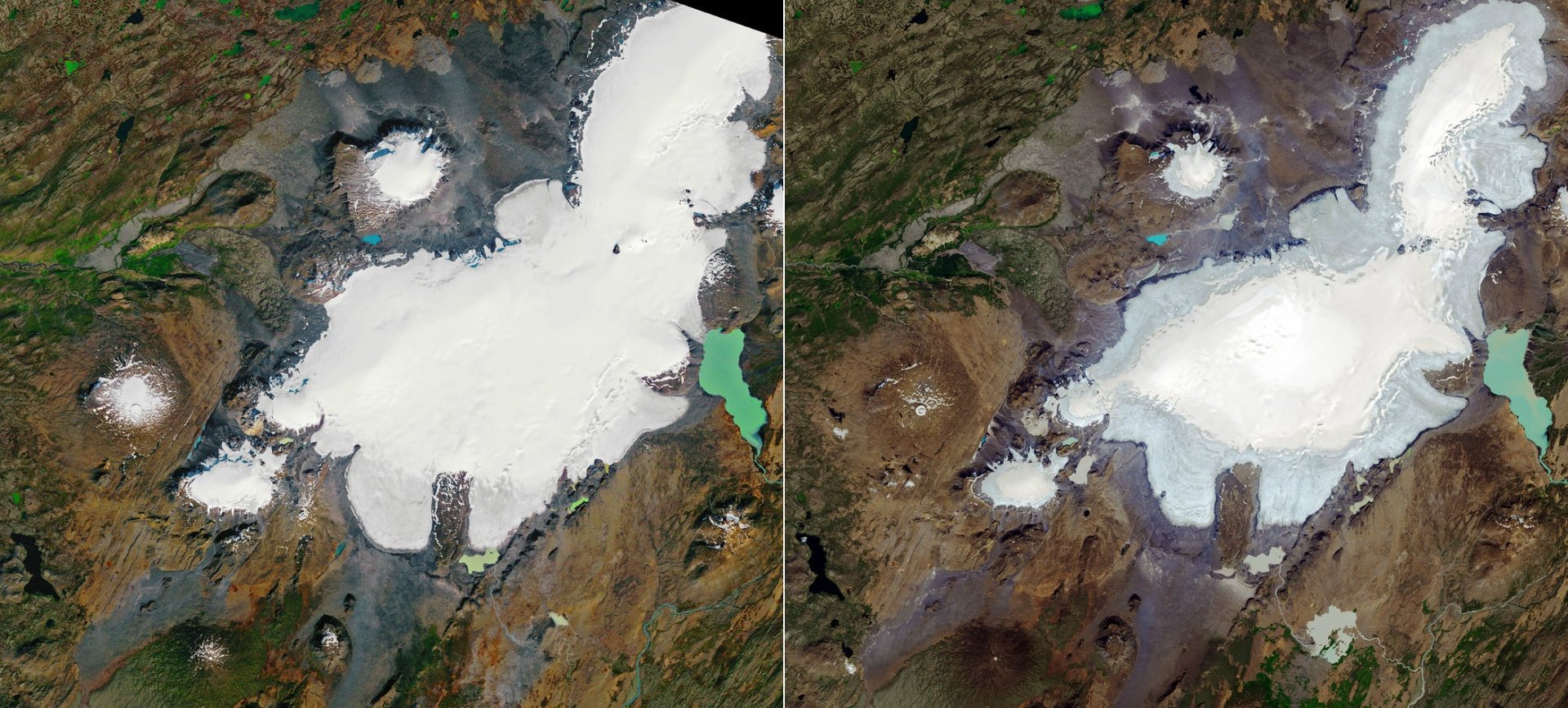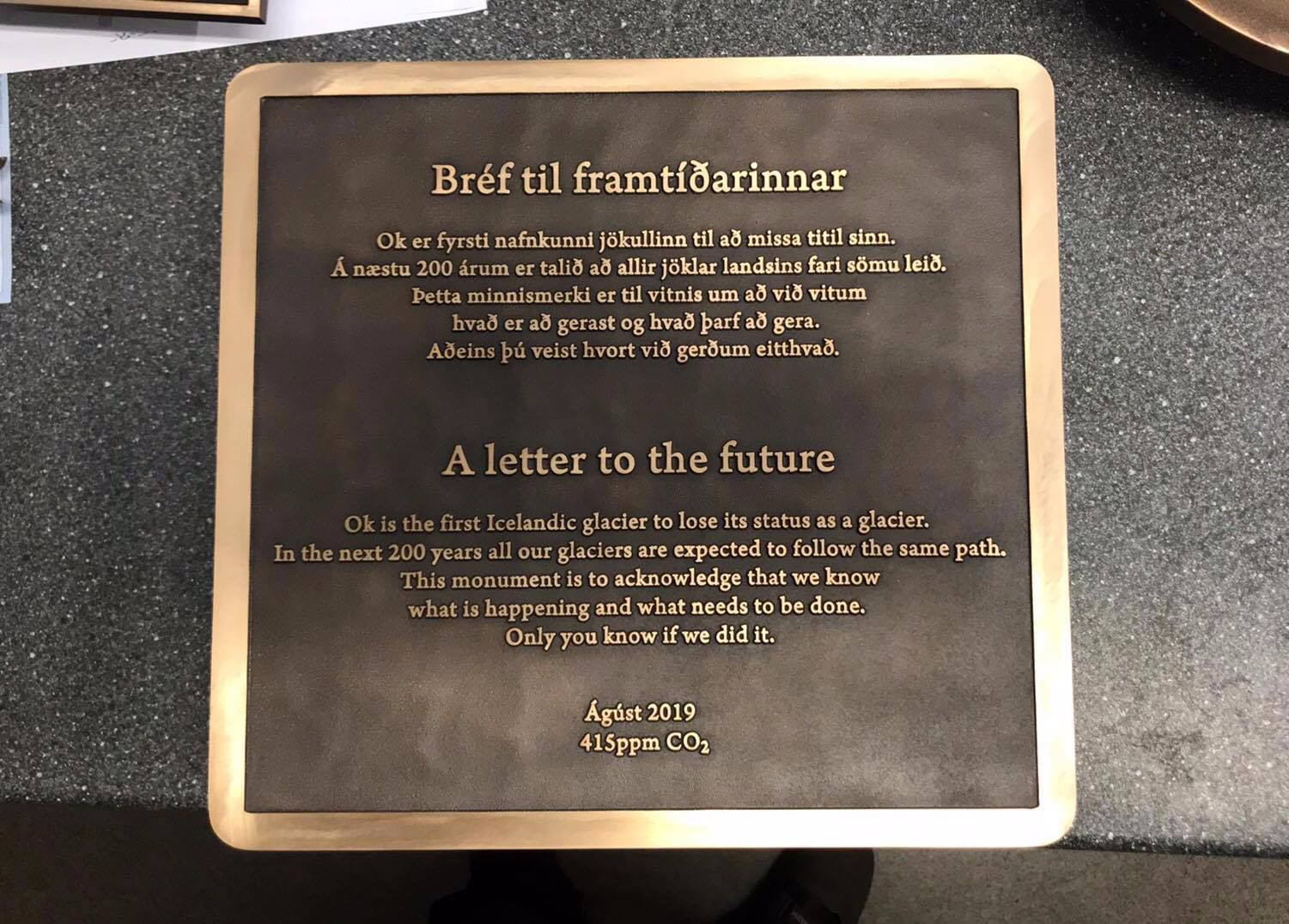The first funeral for a glacier won’t be the last
In 2014, the Icelandic glacier Okjökull was declared dead. Today, scientists, politicians, and members of the public gathered at the site of the former glacier to mourn its passing and hope that such a loss never happens again.


In 2014, the Icelandic glacier Okjökull was declared dead. Today, scientists, politicians, and members of the public gathered at the site of the former glacier to mourn its passing and hope that such a loss never happens again.
Because of global warming, scientists found, the glacier had lost so much ice that what remained was melting where it sat, a sign of “dead ice.”
Today, researchers held a ceremony in Borgarfjörður, Iceland, to commemorate the “Ok” glacier (jökull means glacier in Icelandic) that once stood there. They placed a memorial plaque at the site. Its words, written by Icelandic author Andri Snær Magnason and publicized last month by researchers from Rice University in Texas, communicate the somberness of the situation.
“Ok is the first Icelandic glacier to lose its status as glacier. In the next 200 years all our main glaciers are expected to follow the same path,” it reads. “This monument is to acknowledge that we know what is happening and what needs to be done. Only you know if we did it.”

Scientists and activists hope the loss will mean something. Unfortunately, Okjökull is unlikely to be the last glacier Earth will lose to climate change. Worldwide, glaciers lost more than 10 trillion tons of ice between 1961 and 2016; if they continue at the same rate, they could be gone by the end of the century. Glaciers in Europe, Canada, the United States, and New Zealand are melting the fastest, contributing to sea level rise, accelerating the rate of global warming, and displacing humans.
The memorial at Okjökull is one of several unconventional tacks used recently by scientists and activists to show the world that now is the time to take action to curb global warming. Last year in the US, young activists stormed politicians’ offices to push for action on legislation that reduces carbon emissions; today, Swedish teen environmentalist Greta Thunberg is traveling from Europe to the US on a zero-emissions sailboat because the emissions from flying are so great.
“One of our Icelandic colleagues put it very wisely when he said, ‘Memorials are not for the dead; they are for the living,’” said Rice anthropologist Cymene Howe in a statement. “With this memorial, we want to underscore that it is up to us, the living, to collectively respond to the rapid loss of glaciers and the ongoing impacts of climate change.”
Howe added that while it’s already too late for Okjökull, we’ve still got time to prevent the loss of other glaciers.